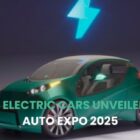What are the locations of the auto charging points in Delhi?
Before you buy an EV, it is crucial to know about various auto charging points in Delhi. The information helps you to remain prepared. You can plan a road trip or daily commute on an EV without concerns. Locations of charging points are increasing continuously. The blog here provides relevant details of areas where you can find charging points. In Delhi, there are no hassles in charging your EV. Continue reading the blog to know more about the topic.
Promoting Sustainable Transport
Delhi’s auto-charging infrastructure reflects the city’s commitment to sustainable transport options. Numerous charging points have been strategically installed throughout the city with the government’s efforts to reduce pollution and carbon emissions.
Key Charging Hubs
Several key locations in Delhi serve as charging hubs for auto-rickshaws. These hubs offer multiple charging points, ensuring that drivers can find a spot for recharging their vehicles conveniently.
Major Metro Stations
Many auto charging points are situated near major metro stations, recognizing the high footfall and accessibility of these locations. EV owners can charge their autos while utilizing public transport, enhancing the synergy between electric mobility and mass transit.
Central Business Districts
Delhi’s central business districts, such as Connaught Place, Nehru Place, and Gurgaon, are equipped with auto charging points. This integration of charging infrastructure within commercial areas supports the adoption of electric autos for commuting and business purposes.
Residential Areas
To cater to the charging needs of EV owners residing in residential areas, Delhi has installed charging points in various neighbourhoods. These locations ensure that individuals can conveniently charge their autos overnight or during the day.
Government Buildings and Institutions
Auto charging points are strategically placed near government buildings and institutions, further encouraging the adoption of electric autos within the public sector. These charging facilities serve as a testament to the government’s commitment to sustainable transportation.
Shopping Complexes and Malls
Recognizing the significance of retail hubs as potential charging points, Delhi has established EV charging infrastructure near shopping complexes and malls. This integration allows EV owners to charge their autos while engaging in leisure activities or shopping.
Tourist Destinations
Delhi, being a popular tourist destination, has taken steps to ensure that auto charging points are available near key tourist spots. This move supports eco-friendly transportation options for visitors, enhancing their overall experience while minimizing environmental impact.
Hospital and Medical Facilities
Auto charging points near hospitals and medical facilities play a crucial role in supporting the healthcare sector’s transition to electric mobility. EV owners visiting these facilities can conveniently recharge their autos while attending to their medical needs.
Educational Institutions
Delhi’s educational institutions, including universities and colleges, have embraced the shift towards electric mobility. Charging points near these institutions cater to the charging requirements of students, faculty members, and staff who commute using electric autos.
Transport Hubs
Delhi’s major transport hubs, such as bus terminals and railway stations, have incorporated auto charging points within their premises. This infrastructure encourages the integration of electric autos as a reliable mode of last-mile connectivity.
Public Parking Spaces
To facilitate the charging needs of electric auto owners, Delhi has allocated charging points in public parking spaces. This initiative ensures that EV owners can charge their vehicles conveniently while utilizing the city’s parking facilities.
Government-Initiated Charging Programs
The Delhi government has also launched various charging programs to encourage the adoption of electric autos. These programs include incentives for auto-rickshaw drivers to transition to electric vehicles and the provision of charging infrastructure at subsidized rates.
App-Based Charging Services
Several app-based charging service providers have emerged in Delhi, allowing EV owners to locate and access charging points through their smartphones. These apps provide real-time information about the availability of charging stations, making the charging process more efficient.
Private Charging Stations
Apart from public charging infrastructure, private players have also entered the electric vehicle charging market in Delhi. Companies and organizations have set up their charging stations, expanding the network and providing additional options for auto-rickshaw drivers.
Future Expansion Plans
Delhi’s commitment to electric mobility extends beyond its current infrastructure. The city authorities have outlined plans for further expansion of the charging network, ensuring that the growing population of electric autos has ample access to charging points.
Collaborative Efforts
The development of auto charging points in Delhi is the result of collaborative efforts between the government, private organizations, and EV charging service providers. This synergy ensures a robust and reliable charging ecosystem for auto-rickshaws in the city.
Conclusive thoughts
Delhi’s auto charging points are strategically located throughout the city, catering to the needs of EV owners and auto-rickshaw drivers. The integration of charging infrastructure in key areas, such as metro stations, commercial districts, and residential areas, ensures easy access and promotes the adoption of electric mobility. With future expansion plans and collaborative efforts, Delhi is paving the way toward a cleaner and greener transport system.




